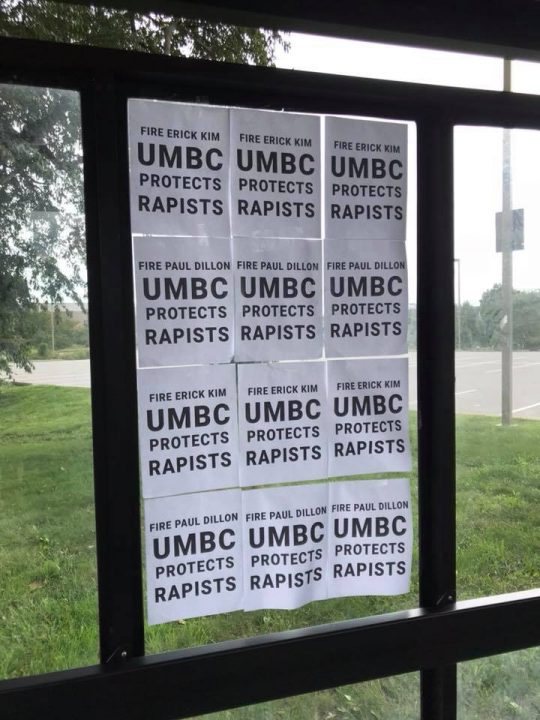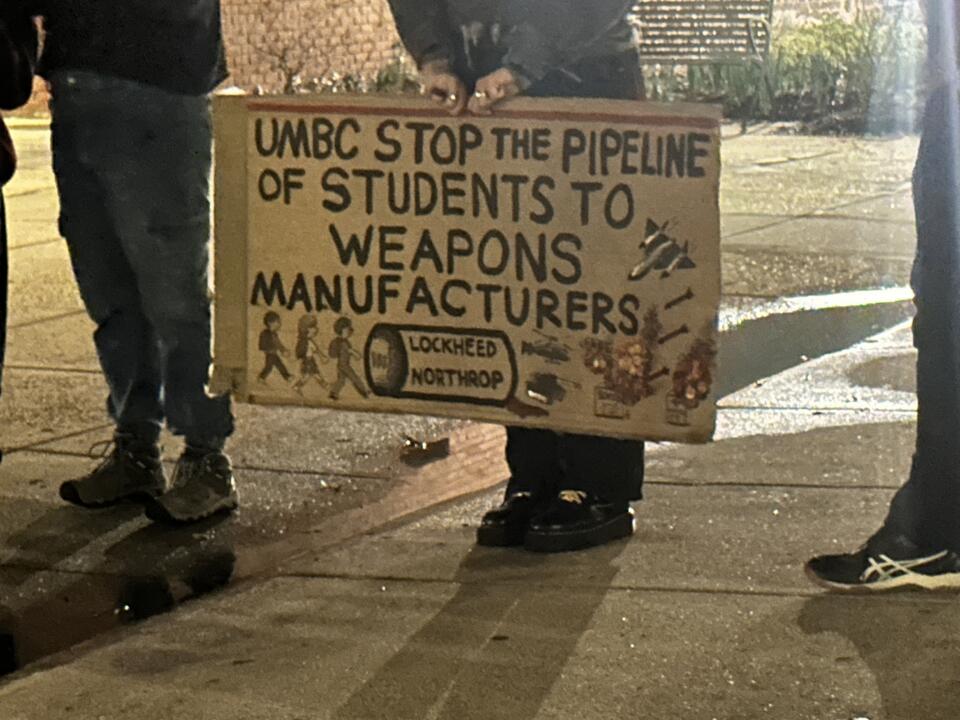Updated on Sept. 15, 2018 at 9:48 p.m. to include information about the student protest.
Updated on Sept. 16, 2018 at 9:36 a.m. to correct information regarding the hosts of the Title IX Misconduct Seminar. The article previously erroneously stated that President Freeman Hrabowski hosted the seminar. This has been updated to reflect that the seminar was hosted by Gina Maisto-Smith and Leslie Gomez. Additionally, the article previously claimed that opinions writer Nate Stewart was leading the student protest, this has been changed to reflect that the protest is led by a student coalition.
Updated on Sept. 19, 2018 at 7:27 p.m. to remove the names of the plaintiffs at their request.
Two women have filed a federal class-action lawsuit against the Maryland State University System, the state’s attorney offices and the police department that alleged the intentional covering up of sexual assault on the UMBC campus.
On Sept. 12, Courthouse News reported that two students have alleged that the police, state attorney Scott Shellenberger, Lisa Dever, the Board of Regents for the public university system and UMBC have worked to hinder sexual assault investigations. This was purportedly done by intimidating survivors, “unfounding” rape cases, destroying rape kits and intentionally misclassifying rape allegations in order to avoid reporting them to both the FBI’s Uniform Crime Report system and the university’s Clery Act crime statistic.
In particular, Baltimore County’s state attorney Scott Shellenberger was accused of sending police to a survivor’s house to threaten her if she pressed further charges. In a BaltimoreBrew article, Shellenberger denied seeing the complaint and added, “I would not comment on it even if I had.”
Much of the complaint focuses on the deliberate manipulation of classification and statistical data to present a reduced rate of rape cases. One of the alleged methods of manipulation was the misclassification of rape complaints as “suspicious circumstances” or “suspicious conditions.” This, according to the complaint, is because “suspicious circumstances” and “suspicious conditions” are not categories in the FBI’s UCR system and do not need to be disclosed in the federally required Clery Act report.
Between 2015 and 2017, 42 cases of rape have been categorized as happening under “suspicious circumstances.” While county officials have pledged reform, the plaintiffs have claimed that the original inquiry was too narrow and that police and public officials have merely shifted their methods in concealing abuse.
The lawsuit states that a UMBC student was lured into a dorm room, drugged and raped during her first week of freshman year. She woke up bleeding in the bathroom. This was reported to a university official, who then summoned Paul Dillon, Chief of the University of Maryland Baltimore County Police Department. Dillon persuaded the student to have the administration handle the allegation and not to report the rape to police. The lawsuit notes, “This is functionally impossible, as Defendant Dillon was a sworn police officer with various reporting duties.”
One of the students ended up submitting to a rape kit examination four days afterward, which found evidence of her rape. Without her knowledge, however, the kit was destroyed after 30 days because of the way that the report was classified. The lawsuit states, “No one told [the plaintiff] that the evidence she had endured a painful and intrusive examination to collect would be destroyed before the administrative process could finish.”
After public officials cleared the suspect of wrongdoing months later, the student re-reported, but her case was absent from university records due to its classification as a “suspicious condition.” Dillon has not responded to messages from BaltimoreBrew.
A Towson student’s case featured a similar outcome. According to the lawsuit, the Towson University junior was plied with alcohol and sexually assaulted along with a friend by three members of the UMBC baseball team after the both of them had passed out.
Similarly to the UMBC student, she submitted a rape kit and found evidence of sexual assault. The lawsuit states that police did not act quickly in regards to obtaining evidence, stating, “Other than visiting the building where the rapes occurred, BCPD performed no investigation,” and that “BCPD did not subpoena the surveillance tapes from the bar or the apartment building.”
The lawsuit states that the Towson student’s case was inexplicably closed in less than 24 hours, the report also being “cleared” due to “exceptional circumstances.” The lawsuit further mentions that later interviews that the police conducted with suspects indicated that said suspects admitted to having sex with the women while incapacitated but said that they “did not know what the issue was.”
Gina Maisto-Smith and Leslie Gomez led this year’s annual Title IX/Sexual Misconduct Seminar on Sept. 14, which focuses on handling sexual misconducts in a caring and effective manner. The current case against the Board of Regents of the University of Maryland remains open for the time being. Posters were found around Academic Row on bulletins calling to “Fire Paul Dillon” and “Fire Erick Kim,” one of UMBC’s Title IX investigators. The posters also read “UMBC protects rapists.” A protest led by a student coalition will be held on Monday, Sept. 17 from 12-1 p.m. in the Breezeway.


